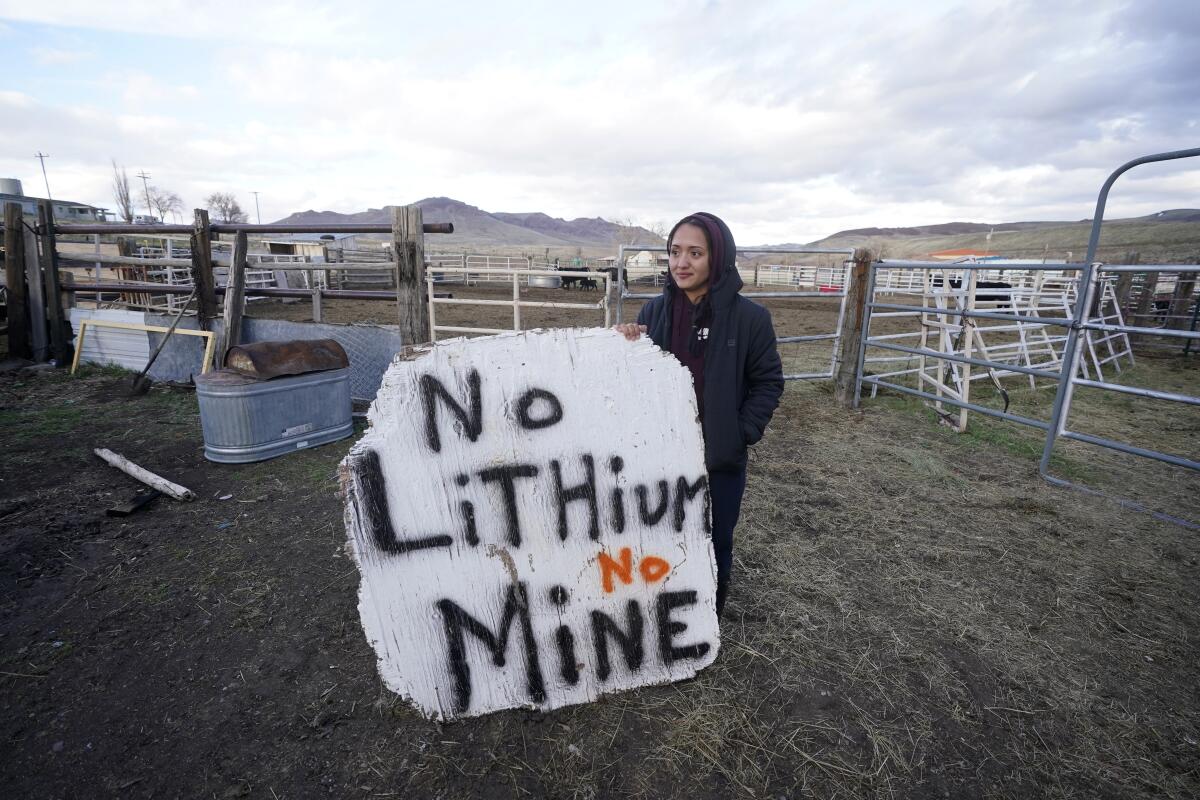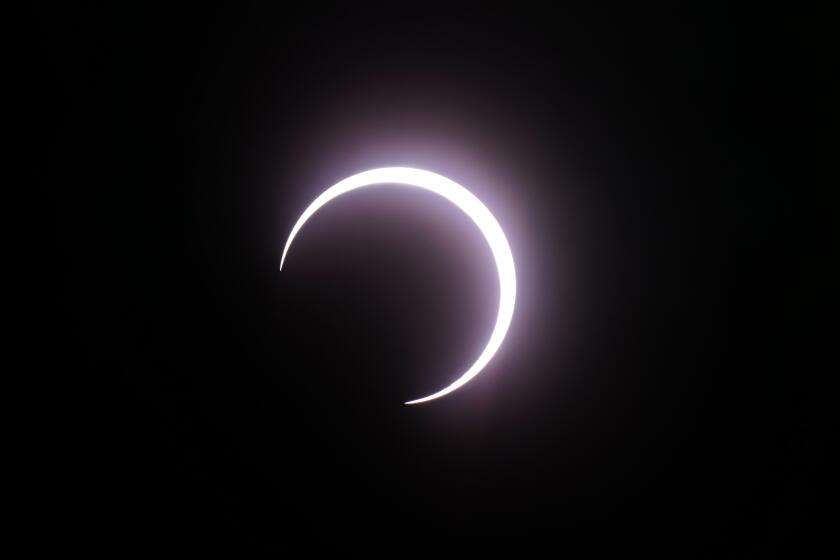Judge rules against tribes in fight over Nevada lithium mine they say is near sacred site

RENO, Nev. — A federal judge in Nevada has dealt another legal setback to Native American tribes trying to halt construction of one of the biggest lithium mines in the world.
U.S. District Judge Miranda Du granted the government’s motion to dismiss their assertions that the mine is being built illegally near the sacred site of an 1865 massacre along the Nevada-Oregon line.
But she said in an order this month that the three tribes suing the Bureau of Land Management deserve another chance to amend their complaint to try to prove the agency failed to adequately consult with them as required by the National Historic Preservation Act.
“Given that the court has now twice agreed with federal defendants [and] plaintiffs did not vary their argument ... the court is skeptical that plaintiffs could successfully amend it. But skeptical does not mean futile,” Du wrote Nov. 9.
She also noted part of their case is still pending on appeal at the 9th U.S Circuit Court of Appeals, which indicated last month it likely will hear oral arguments in February as construction continues at Lithium Nevada’s mine at Thacker Pass about 230 miles northeast of Reno.
Du said in an earlier ruling the tribes had failed to prove the project site is where more than two dozen of their ancestors were killed by the U.S. Cavalry Sept. 12, 1865.
Her new ruling is the latest in a series that have turned back legal challenges to the mine on a variety of fronts, including environmentalists’ assertions it would violate the 1872 Mining Law and destroy key habitat for sage grouse, cutthroat trout and pronghorn antelope.
In the name of climate action, California pushed the world toward electric cars. But building enough of them is creating its own environmental crises.
All have argued the bureau violated numerous laws in a rush to approve the mine to help meet sky-rocketing demand for lithium used in the manufacture of batteries for electric vehicles.
Lithium Nevada officials said the $2.3-billion project remains on schedule to begin production in late 2026. They say it’s essential to carrying out President Biden’s clean energy agenda aimed at combating climate change by reducing dependence on fossil fuels.
“We’ve dedicated more than a decade to community engagement and hard work in order to get this project right, and the courts have again validated the efforts by Lithium Americas and the administrative agencies,” company spokesman Tim Crowley said in an email to the Associated Press.
Du agreed with the government’s argument that the consultation is ongoing and, therefore, not ripe for legal challenge.
When a flood of tourists threatened to inundate Bluff, Utah, to view the ‘ring of fire’ eclipse, the town struggled to prepare.
The tribes argued it had to be completed before construction began.
“If agencies are left to define when consultation is ongoing and when consultation is finished ... then agencies will hold consultation open forever — even as construction destroys the very objects of consultation — so that agencies can never be sued,” the tribal lawyers wrote in recent briefs filed with the 9th Circuit.
Will Falk, representing the Reno-Sparks Indian Colony and Summit Lake Paiute Tribe, said they’re considering whether to amend the complaint by the Dec. 9 deadline Du set, or focus on the appeal.
“Despite this project being billed as ‘green,’ it perpetrates the same harm to Native peoples that mines always have,” Falk told AP. “While climate change is a very real, existential threat, if government agencies are allowed to rush through permitting processes to fast-track destructing mining projects like the one at Thacker Pass, more of the natural world and more Native American culture will be destroyed.”
The Paiutes call Thacker Pass “Pee hee mu’huh,” which means “rotten moon.” They describe in oral histories how Paiute hunters returned home in 1865 to find the “elders, women, and children” slain and “unburied and rotting.”
The Oregon-based Burns Paiute Tribe joined the Nevada tribes in the appeal. They say BLM’s consultation efforts with the tribes “were rife with withheld information, misrepresentations, and downright lies.”
More to Read
Sign up for Essential California
The most important California stories and recommendations in your inbox every morning.
You may occasionally receive promotional content from the Los Angeles Times.












